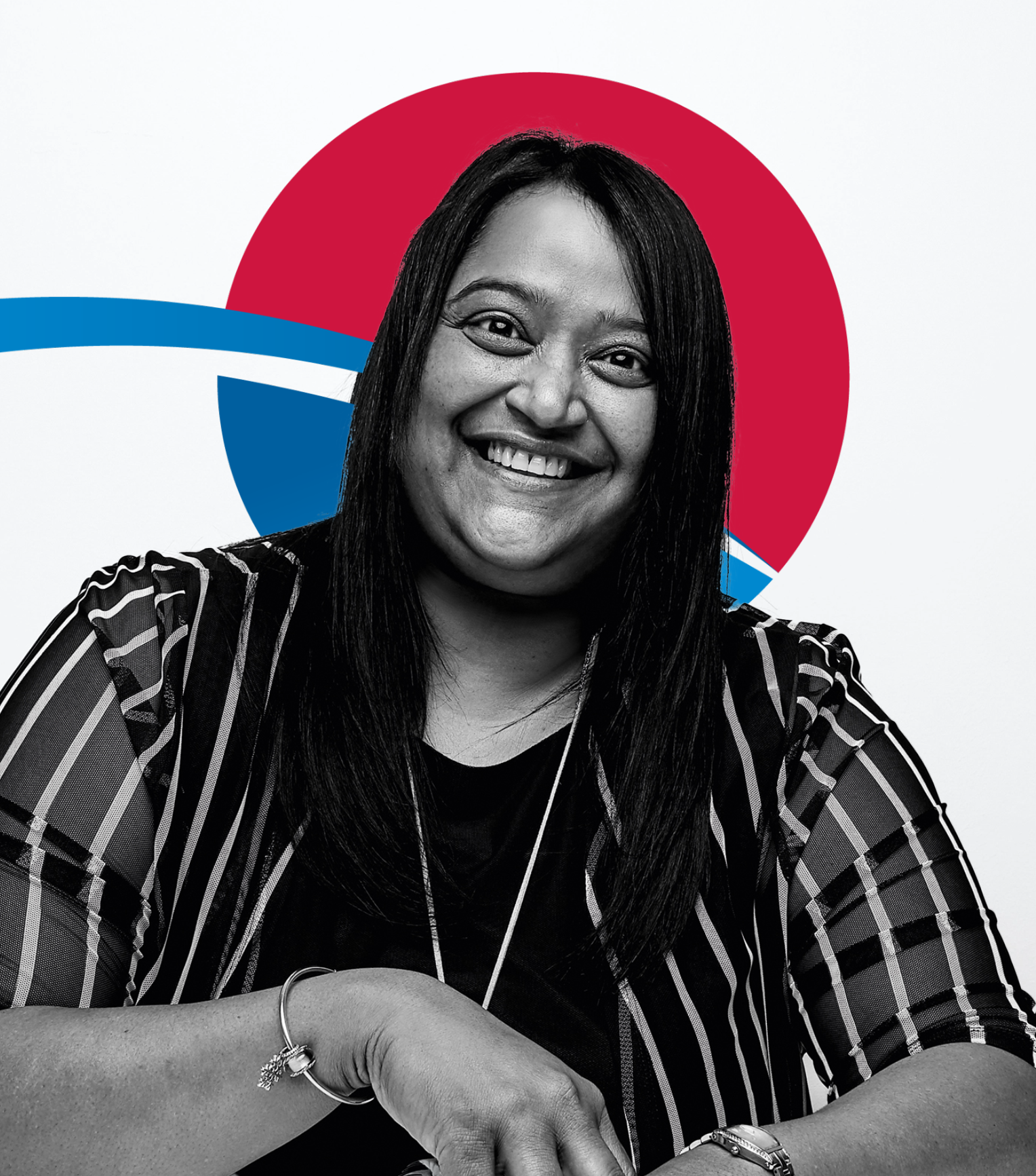Director’s perspective
INTERVIEW WITH VANESSA GOVENDER
As Executive Director: Corporate Affairs at AYO, Vanessa Govender wears many hats. She manages people, processes and governance and strives to create synergies across the various business units and the communities they operate in. With 2021 being one of the most challenging years not just for business, but for society at large, Vanessa had to think out of the box to effectively balance the interests and create value for all stakeholders in the AYO eco system.
In this chat, Vanessa shares her approach and strategic direction in respect of supporting AYO’s broader community, promoting UN SDGs and creating value for all South Africans.
AYO had a tough year. Yet, amidst all the business challenges you had to address, you managed to initiate and implement some amazing community projects. What drives you?
I am really passionate about people, and this defines how I approach corporate challenges as well. The pandemic certainly tested and continues to test businesses of all shapes and sizes, the world over, but I simply can’t ignore the humanitarian crisis that has come along with that. So many people have lost their lives or loved ones, thousands have been left with no income and the psychological burden of lockdowns, uncertainty and fear has affected everybody to some extent. In such times it is imperative that people have someone to lean on and my personal philosophy is “never let an opportunity to do good go to waste”.
That being said, I also notice how the COVID pandemic has shifted the focus in terms of social value creation and important areas such as access to education, gender equality and green environment have slipped far down the priority list, in favour of more basic necessities like food, shelter and PPE. While I appreciate the needs’ hierarchy, I believe that “dropping the ball” when it comes to these critical issues, is a short-sighted approach that South Africa simply can’t afford.
Tell us about your approach to CSI. How do you prioritise projects and determine where to allocate your resources?
Like a growing number of organisations, at AYO we use the UN SDGs framework as the starting point of our social responsibility strategy. But we are also guided by the distinctive needs of our immediate communities. Africa has over 800 million “young” people with an average age of 19, yet the prospects for our youth are dismal. Lack of access to quality education and economic opportunities are exacerbated by the “digital divide” and prevent us from building an inclusive economy from which everyone benefits. This is the area that we focus on, as I believe that even a modest improvement in these statistics will have an exponential effect on societal value in our country.
Our approach is holistic, which said differently means that we integrate our good corporate citizenship strategy within our overall business strategy. In other words, we don’t think of CSI (corporate social investment) but CSV (creating shared value). So, essentially, we adapt our business model to address societal needs and challenges, rather than sponsor “CSI campaigns” on an individual basis.
For example, the AYO Academy has been running for several years now and the outcomes of the investment are evident. It starts off with value-creating partnerships with reputable NGOs like the SAME and Sakhikamvu Foundations, through which we sponsor the build, set up and maintenance of state-of-the-art science centres at underprivileged schools in and around Cape Town. This is then followed up with projects like Technogirl and our own internship programme, which provide workplace experience to high school and university students during their academic breaks. Upon completion of their studies, we offer the rising stars longer term internships (six to twelve months) and ultimately full-time employment within the Group.

The purpose is to create a “full circle” and provide opportunities to young people, which wouldn’t have ordinarily had access to the technology field, while also address AYO’s and the industry’s talent pipeline and succession planning needs.
What have been some of the most notable projects and what makes them different to traditional CSI initiatives?
In 2021 AYO actually doubled its CSV spend, despite the bleak economic and financial performance outlook. We simply couldn’t remain impartial to the plight of our communities and responded to numerous requests for basic provisions, from PPE equipment for Eastern Cape schools to Ladles of Love’s Guinness World Record food can collection initiative. But, as I already mentioned, this was not done at the expense of more strategically aligned initiatives.
We had noticed that environmental sustainability drives, for example, have somehow lost momentum in the past 18 months, which is understandable given the priorities’ shift. Yet, waste, and in particular technology waste, is a growing problem. So, we launched the inaugural AYO e-waste campaign, which is here to stay and, again, has been firmly incorporated in our business strategy.
In this pilot phase, we developed an awareness and educational campaign, which we rolled out amongst our own employees, backed up by an e-waste recycling drive. We partnered with an external service provider to collect and reprocess discarded digital and electronic devices, brought by our staff. In 2022, we plan to roll out the campaign to our subsidiaries and associated companies and hopefully, to the broader community in the medium term. Simultaneously, we started looking at potential acquisition targets, active in the electronic recycling space, to deeply entrench environmental sustainability into our business model and eco system and therefore, create long term value.
